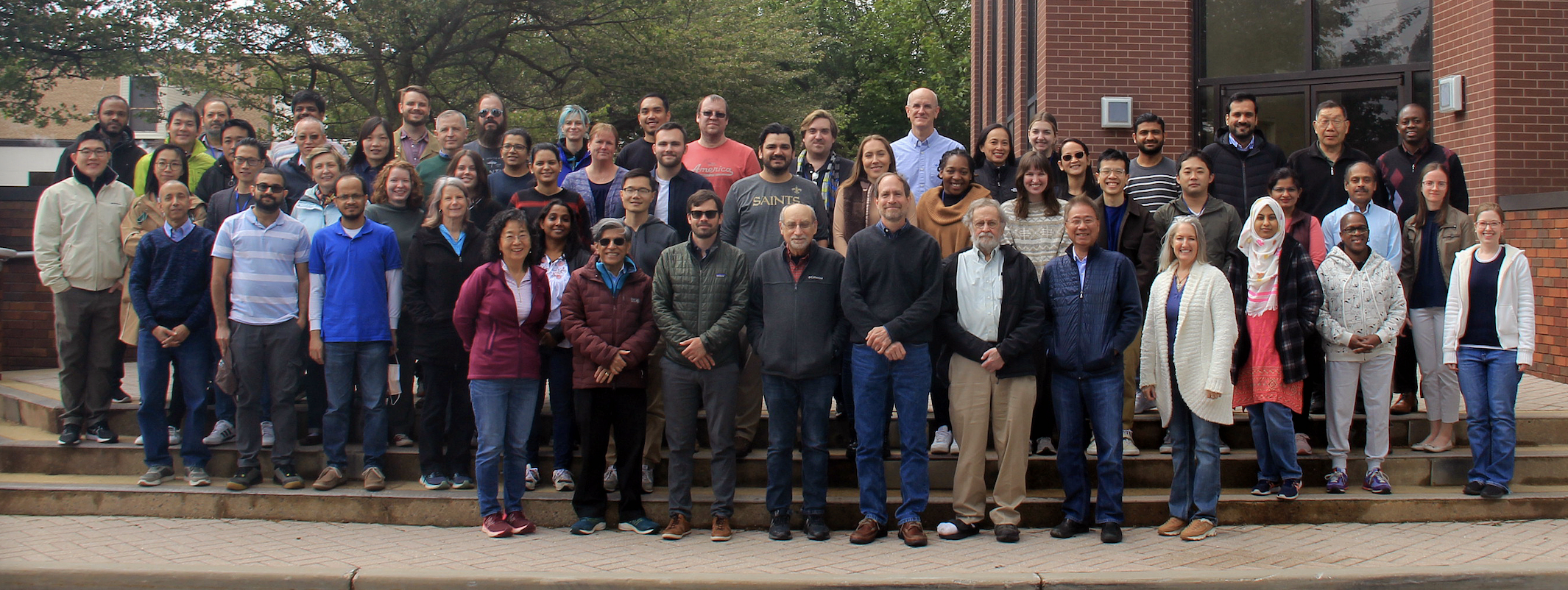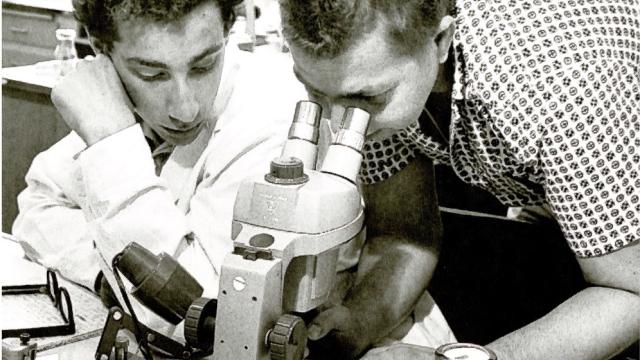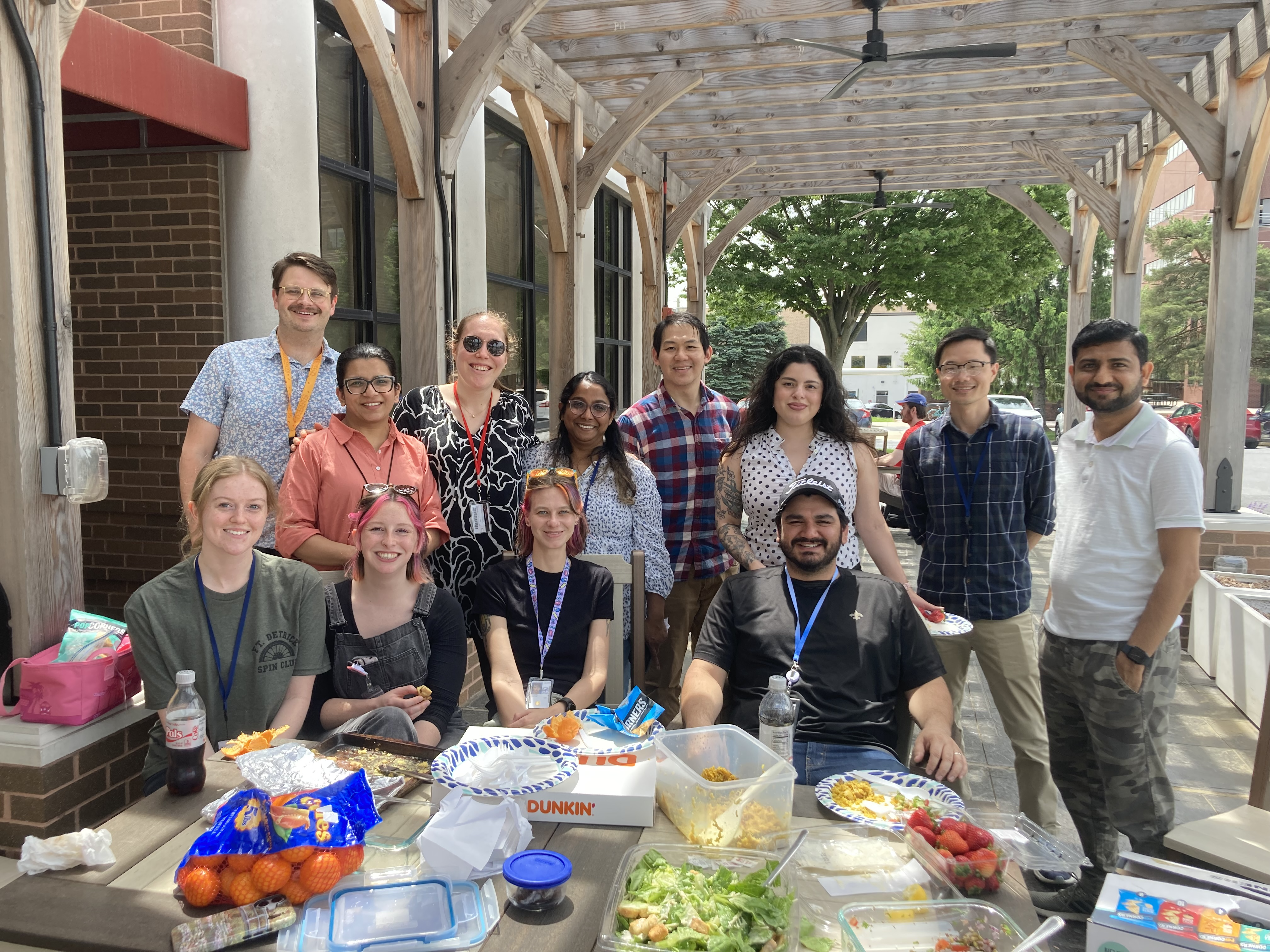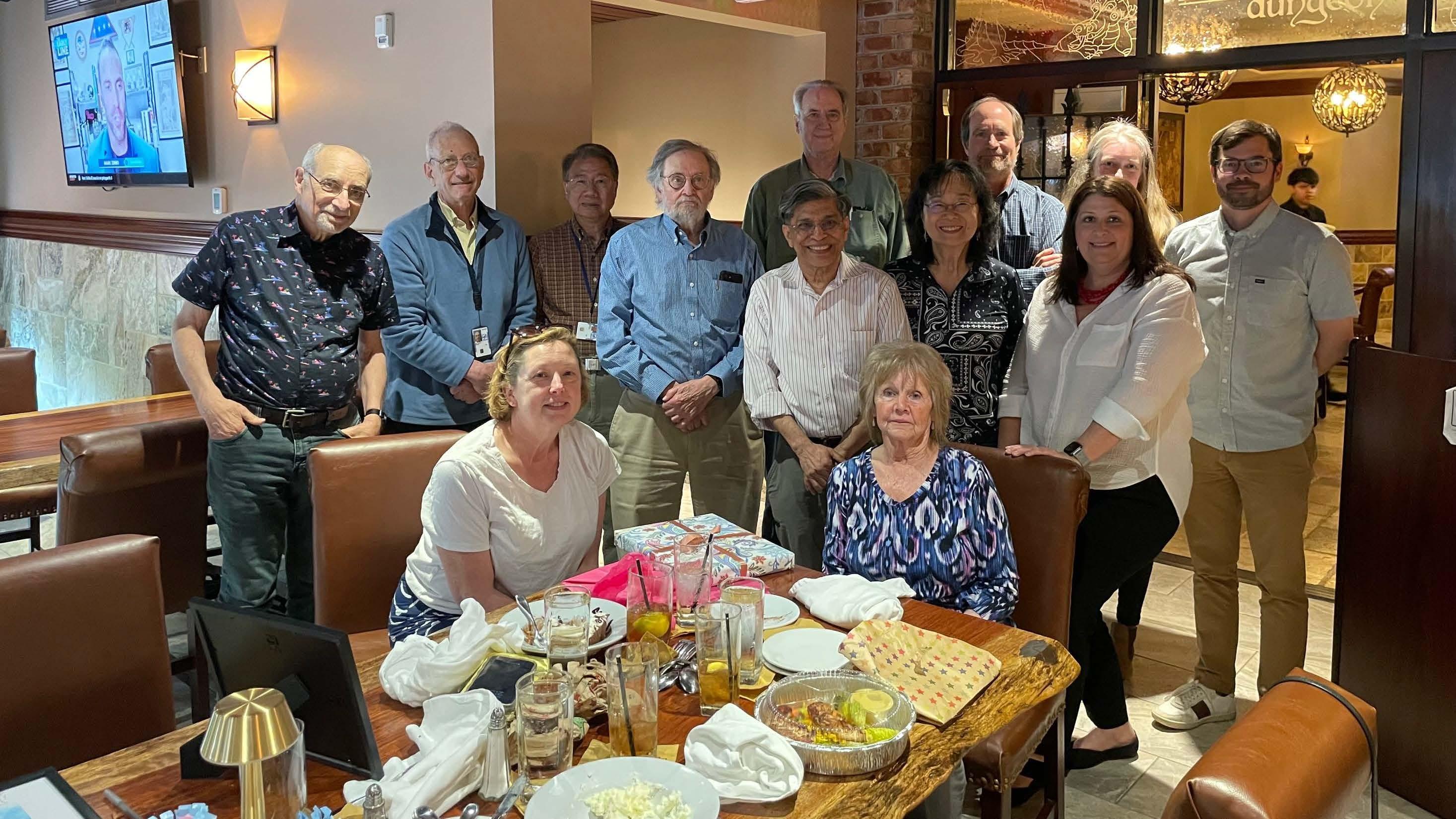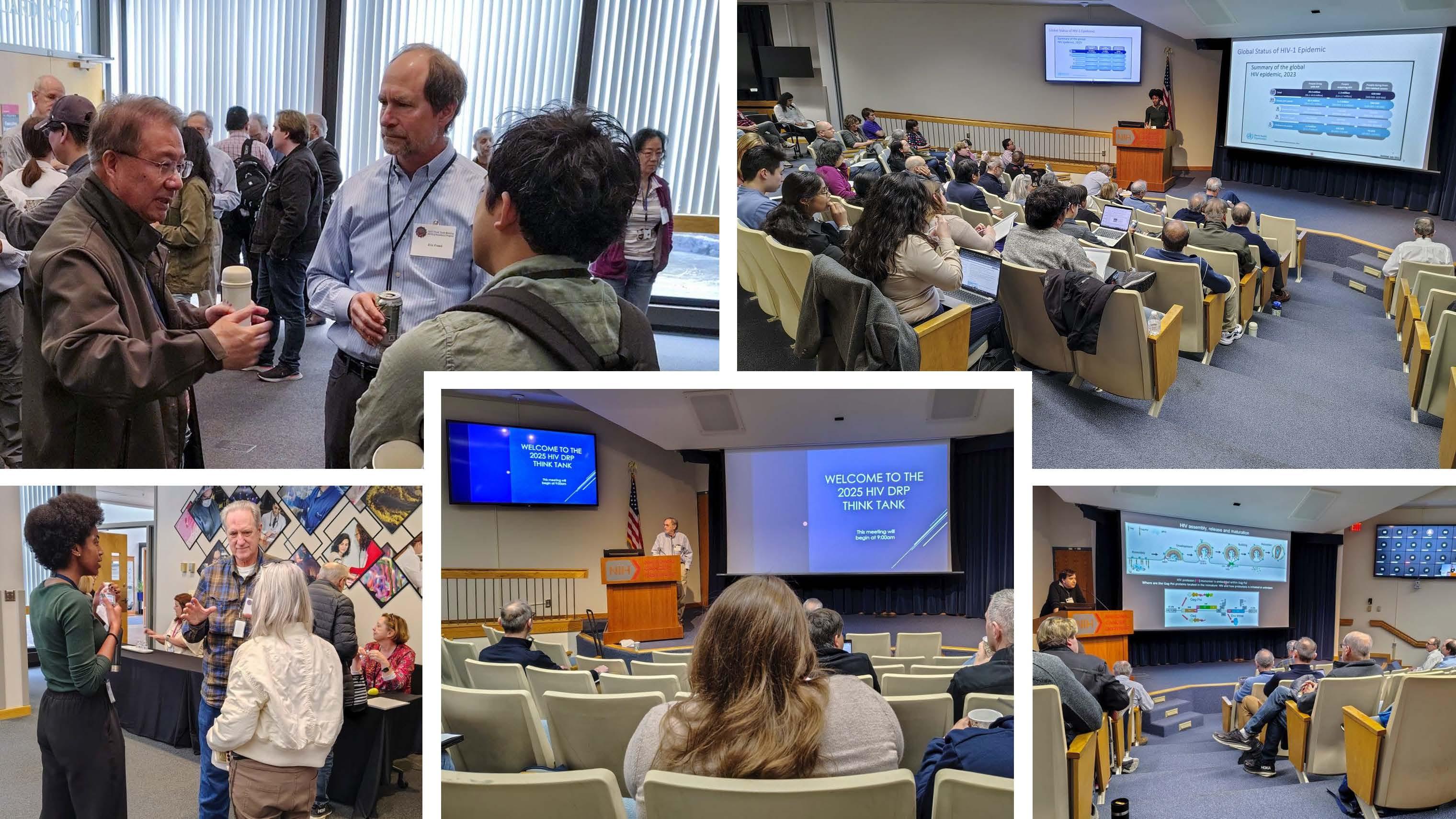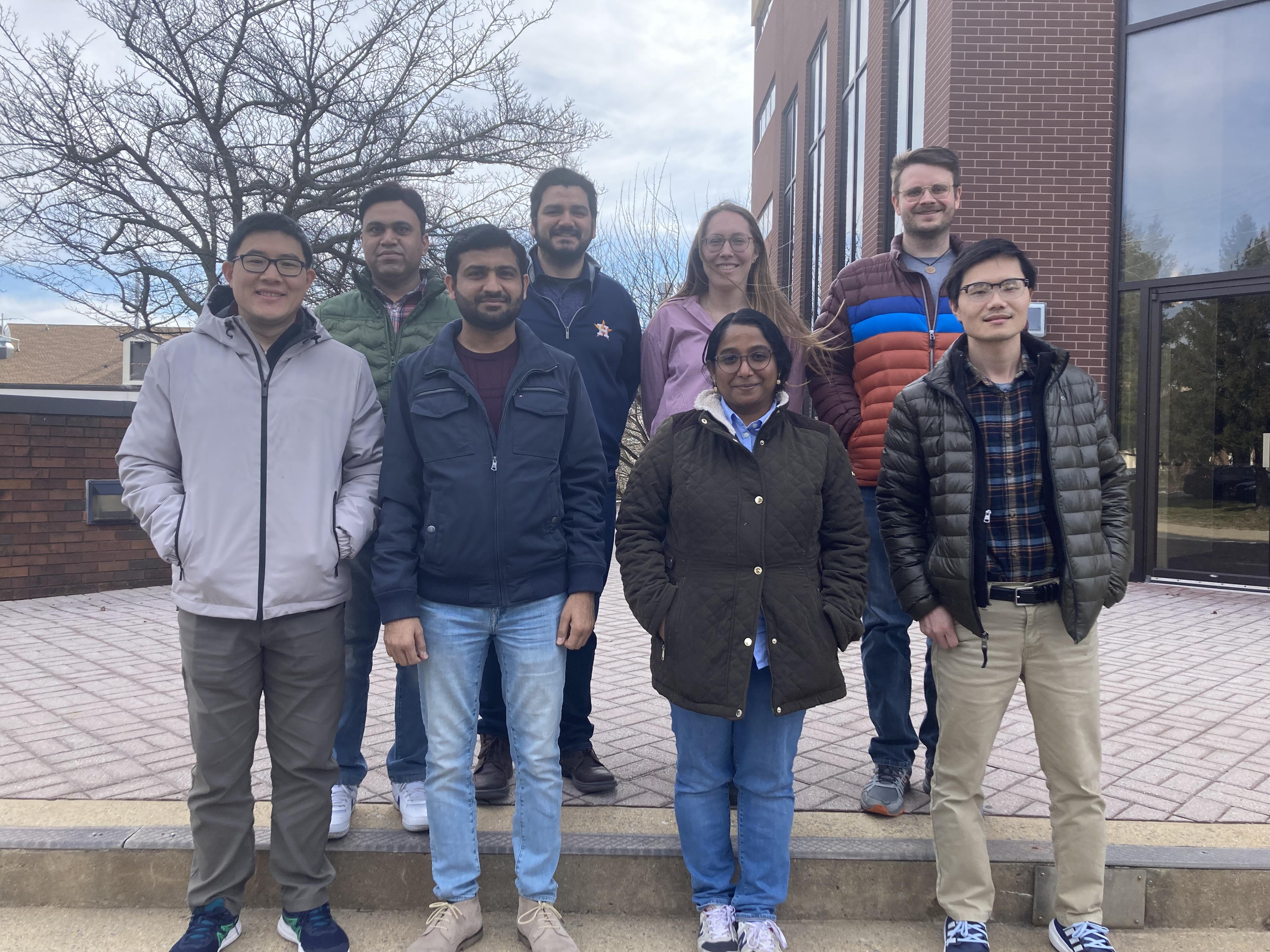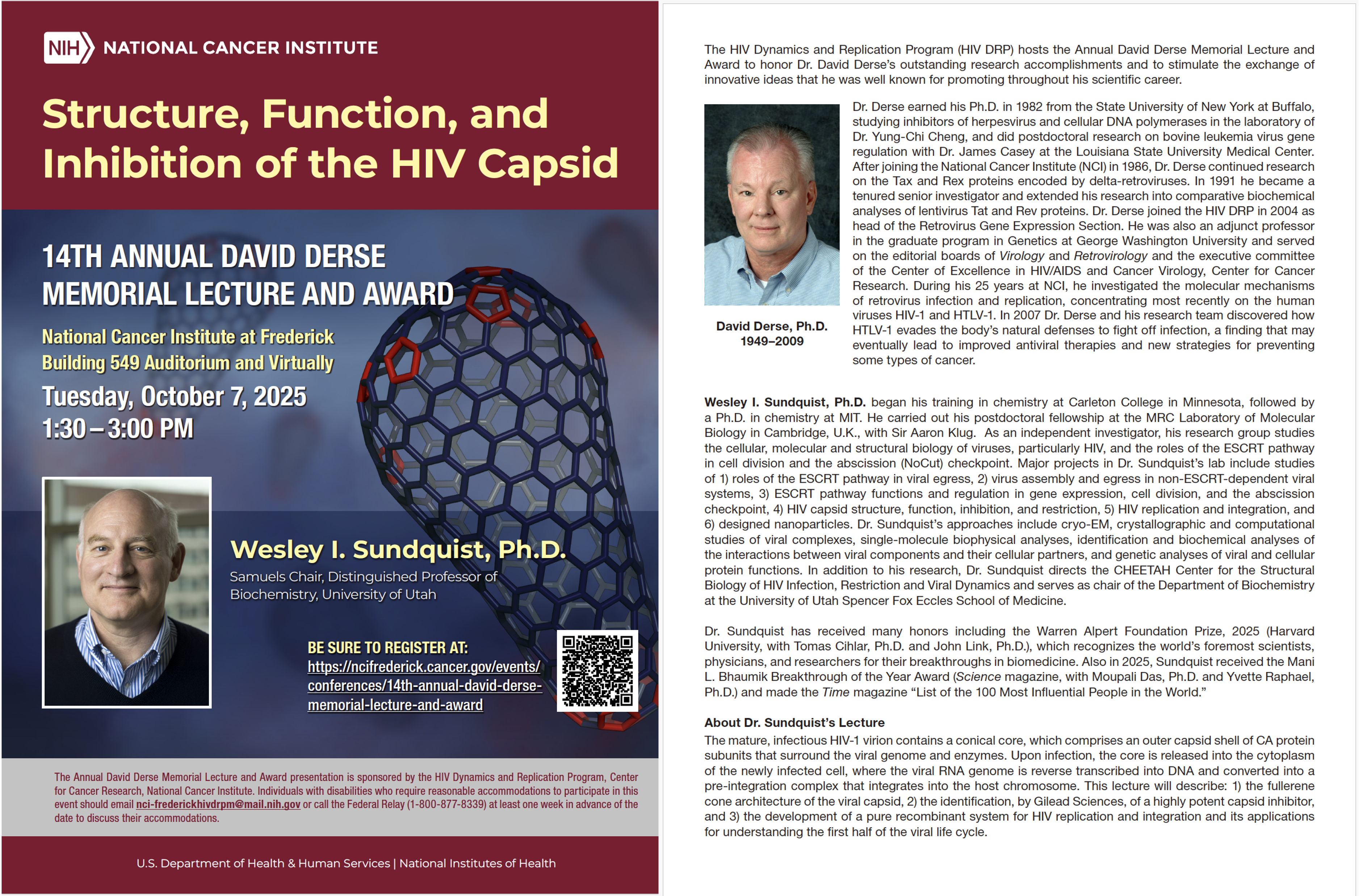Learn about our mission, research interests and goals, and organization.
HIV Dynamics and Replication Program
Recent Publications
View a listing of our most recent publications.
HIV Dynamics and Replication Program
The HIV Dynamics and Replication Program - April, 2023
The HIV Dynamics and Replication Program (HIV DRP) was formed in 1997 as the HIV Drug Resistance Program, with the mission of conducting and fostering multidisciplinary basic, translational, and clinical research focused on problems related to drug-resistant HIV.
The scope of research conducted by HIV DRP scientists has expanded over the years to encompass a broader range of important problems in virus biology. Thus, in 2015, the name of the Program was changed to HIV Dynamics and Replication to better capture the breadth of the research carried out by the Program.
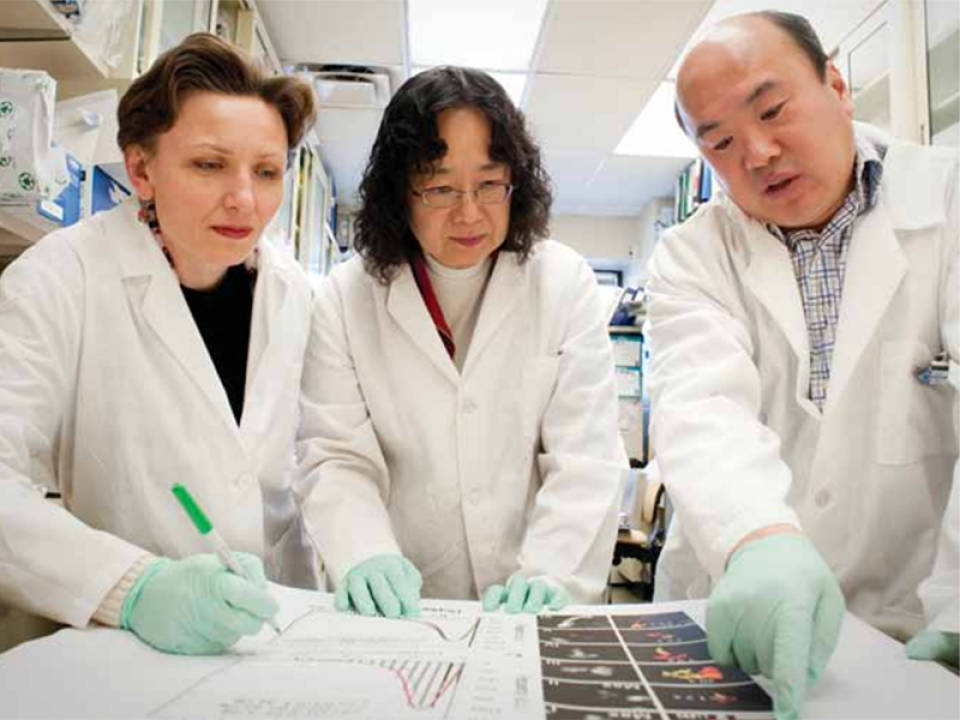
Clinical Trials
The clinical arm of the HIV Dynamics and Replication Program is under the direction of Frank Maldarelli, M.D., Ph.D. (Clinical Retrovirology Section). Its primary research focus is to understand the population genetics, evolution, dynamics, and persistence of HIV infection in patients, particularly as related to the development of resistance and possible ways to overcome it. In collaboration with the National Institute of Allergy and Infectious Diseases/Clinical Center Medicine Department AIDS Clinic and the HIV and AIDS Malignancy Branch of the NCI Center for Cancer Research (CCR), Dr. Maldarelli develops and secures Institutional Review Board approval for clinical trials, and implements them using the support of these groups.
All CCR clinical trials take place at the NIH Clinical Center in Bethesda, Maryland, and are open to patients with HIV, cancer, or immunodeficiency disorders, regardless of where they live in the United States.
For further information about our clinical trials, please contact Dr. Maldarelli at fmalli@mail.nih.gov.
Job Vacancies
We have no open positions in our group at this time, please check back later.
To see all available positions at CCR, take a look at our Careers page. You can also subscribe to receive CCR's latest job and training opportunities in your inbox.
News
DRPAC celebratory lunch for Alex Kleinpeter
The DRPAC hosted a lunch for Alex to celebrate his time as chair of the DRPAC. Alex will be heading to the University of Iowa as a tenure-track assistant professor in the Department of Microbiology and Immunology at the University. Congratulations Alex and all the best! The DRPAC welcomes Rebecca Grande (Freed lab) as the incoming DRPAC chair.
Photo: outgoing DRPAC chair Alex Kleinpeter (baseball hat), incoming chair Rebecca Grande (white/black top standing behind Alex).
Congratulations to Connie Kinna & Terri Burdette on their retirement
After 17 years at the HIV DRP as a Administrative Laboratory Manager (and 28 years at NIH), Terri retired on April 19. After 27 years at the HIV DRP as a Program Specialist (and 30 years at NIH), Connie retired on April 30. We wish you both the very best in the next chapter of life. Thank You Terri & Connie!
HIV DRP 28th Think Tank 2025
The HIV Dynamics and Replication Program (HIV DRP) held it's 28th Annual DRP Think Tank Meeting on Tuesday, April 15, 2025. As before, the program consisted of a series of short (15-minutes or less) presentations by members of the local retrovirology community on topics related to HIV, AIDS, and retrovirus biology.
Congratulations to the winners of the NCI travel fellows award*:
Yuta Hikichi (HIV-DRP, Eric Freed lab) for his talk on “Elucidating the Mechanism by Which Nucleocapsid Mutations Confer Resistance to Integrase Strand Transfer Inhibitors"
2. Ryan Burdick (HIV DRP Vinay Pathak lab) for his talk on “HIV-1 Uncoating Inside Nuclear Speckles Strongly Enhances Integration into Speckle-Associated Chromatin Domains”
*only NCI fellows were eligible for this award.
Fellowships
Training Opportunities
The HIV Dynamics and Replication Program (HIV DRP) is committed to training and supporting the next generation of researchers. There are opportunities available to you at each level of your education/career stage:
High School/College Student & Graduate
- Medical School Graduate
Postdoctoral Fellow
There are summer internships, fellowships, and unique training programs designed to increase expertise in areas such as biotechnology and regulatory review. In addition, NCI has also established several programs to encourage students from populations that are underrepresented in science or individuals from disadvantaged backgrounds who are interested in biomedical research careers. Visit Training Opportunities at NCI CCR to learn more about all the programs that are available. For information on the benefits and support available to trainees, visit Why Choose CCR?
DRP Advisory Committee (DRPAC)
We have established the DRP Advisory Committee (DRPAC) to provide a voice for our fellows, students and staff to help inform decisions made with DRP management that affect training and career development.
The DRPAC is made up of representatives from each of the DRP labs. DRPAC subcommittees help integrate new hires, facilitate external and internal communications and organize professional and social events, seminars and conferences.
Congratulations to the DRPAC who received a 2024 NCI Director's Award for Workplace Wellness-NCI Champions for their accomplishments, "For launching fellow-led initiatives to enhance the personal and professional development of all HIV Dynamics and Replication Program fellows, students and staff".
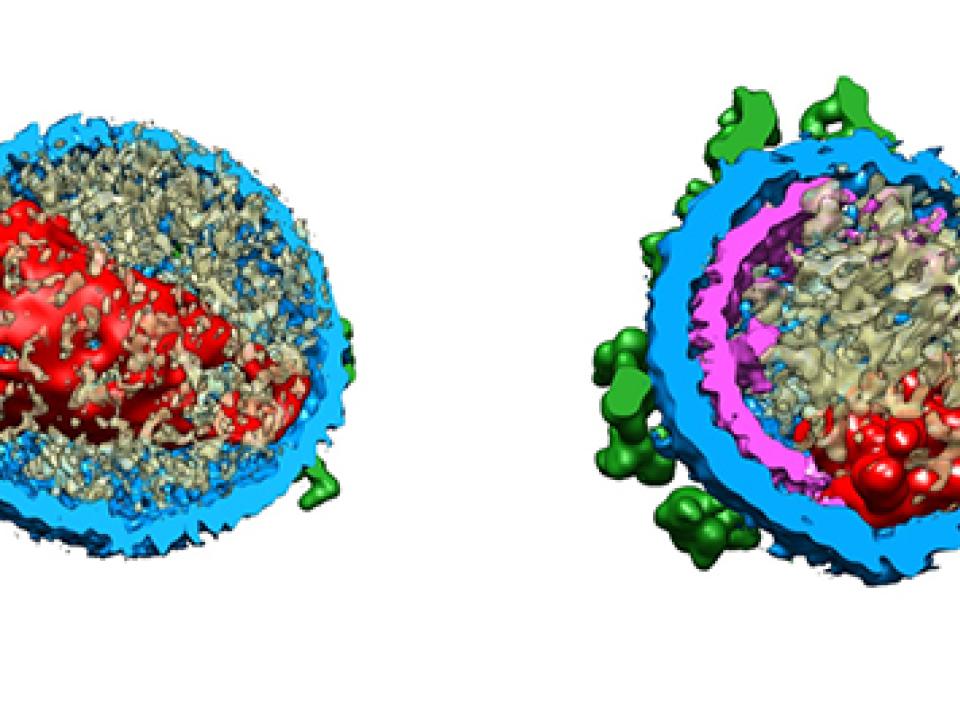
Resources
The HIV DRP is a major source of resources that benefit the research community. Reagents have been provided to the NIH AIDS Reagent Program and to academic researchers, and the NIH has licensed expression plasmids and mouse strains developed by our investigators. Learn more at the links below.
Future Events
14th Annual David Derse Lecture & Award: Wesley I. Sundquist, Ph.D. Samuels Professor and Co-Chair of the Department of Biochemistry at the University of Utah - Tuesday October 7, 2025
The HIV DRP Conference "Evolution at the host-virus interface" Confirmed speakers include: Patrick T. Dolan (NIH), Erik Flemington (Tulane), Elodie Ghedin (NIH), Eugene Koonin (NIH), W. Ian Lipkin (Columbia), Jeff F. Miller (UCLA), Sarah Sawyer (UC-Boulder), and Ian Wilson (Scripps Research) - Thursday November 20, 2025



